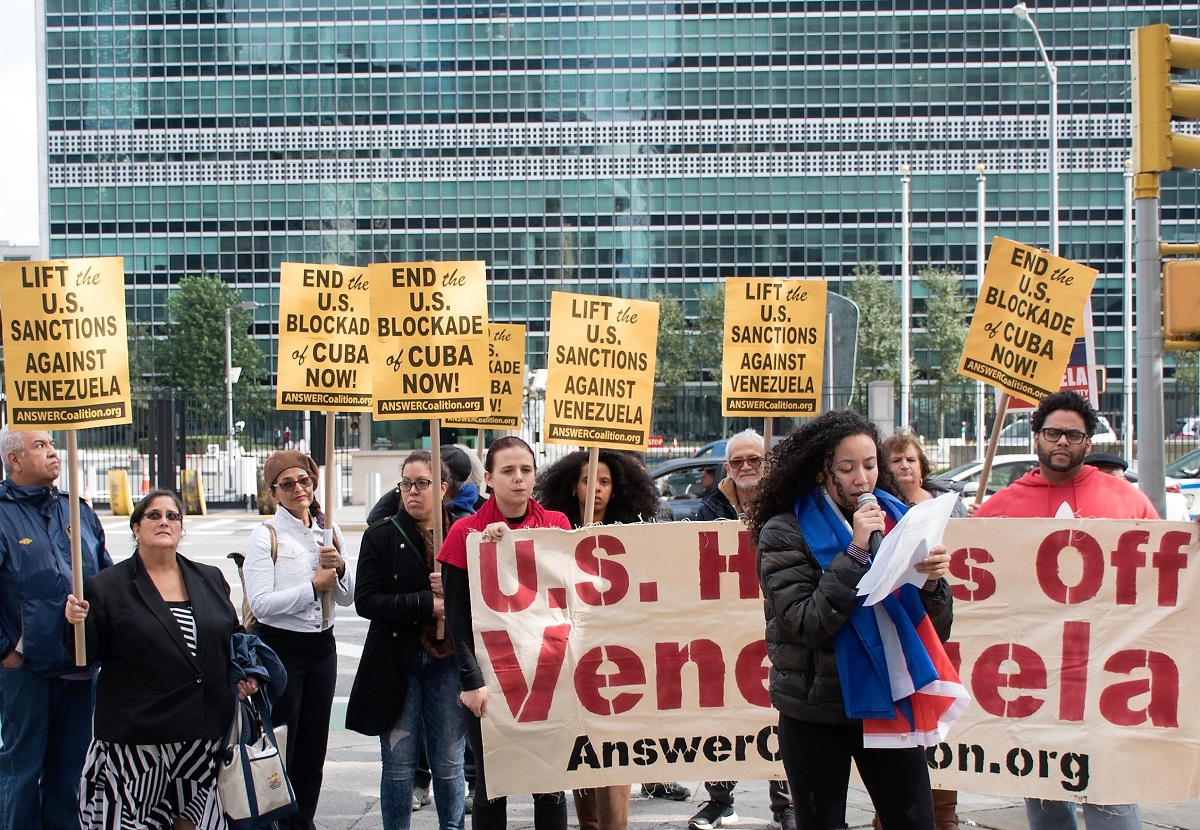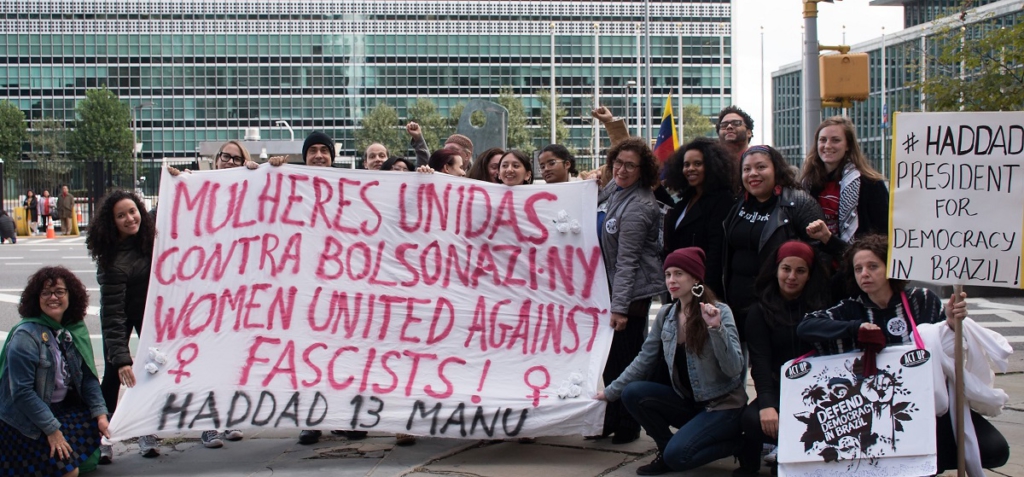
On Oct. 20 activists gathered at the United Nations in New York City to demand that Washington end the blockade of Cuba, and lift sanctions against Venezuela. Passerbys took interest in the lively protest, some joining to listen to speakers.
Gabriela Silva, of the ANSWER Coalition, said that since 1992, virtually every government in the United Nations has voted in favor of ending the blockade of Cuba. In last year’s General Assembly vote, 191 governments were for ending the blockade, and only two backing it—the U.S. and Israel.
Billions to blockade Cuba, nothing for poor people here
“Our government spends millions of dollars each year attacking Cuba,” Silva said, while it cuts service here. “ I think of the homeless people in the richest city in the world. I think of Puerto Rico and the disaster capitalism occurring there post Hurricane Maria. I also think of the $934 billion dollars the U.S. blockade has cost Cuba over the past 56 years [which] negatively impacts every part of their society: infrastructure projects are delayed, housing can’t be built, hospitals cancel elective surgeries, agricultural cooperatives struggle to rebuild after hurricane damage, factories can’t acquire supplies, and school materials are hard to come by for students. Cuba has managed to survive because, as a result of their Socialist revolution, they have implemented a planned economy that produces and distributes resources according to need, not profit.”
In marked contrast to the U.S., Cuba prioritizes international working class solidarity. “Tens of thousands of Cuban professionals are giving service in over 75 countries… Thousands of Cuban doctors have provided free medical care to the world’s poorest people… To quote Cuban President Miguel Diaz Canel: ‘[Cuba] is committed to those who have suffered and continue still to suffer as a result of colonialism, neoliberalism, imperialism and racism….Imagine if we could say the same about our own country. …
“We are here to stand together against colonialism, against neoliberalism, against the blockade! Let us fight for a foreign policy of solidarity, not war. Of liberation, not racism! Of socialism, not capitalism!
Sanctions cost Venezuela $6 billion this year
Emilie Rose, of the Party of Socialism and Liberation, explained that U.S. economic sanctions cost Venezuela “about $6 billion dollars over the past year, adding to the factors exacerbating the crisis, like speculation on the currency, hoarding and trafficking of basic food and other supplies, and the Saudi-manipulated steep drop in crude oil prices…The U.S. State Department has also threatened military intervention…
“Here in New York City, one in ten public school students is homeless” and “three apartments sit vacant per every homeless person.” At this city’s Rikers Island jail, “ it costs nearly a quarter of a million dollars a year to keep each person locked up, and most of the people there are just awaiting trial; meanwhile, the average New Yorker with student debt has about $35,000 of student debt,” she added.
Venezuela strives to meet human needs
“But in la República Bolivariana de Venezuela, the Bolivarian government has built 2 million low-cost homes for people to live in, with a goal to build 3 million by 2019. All elementary school students in Venezuela are given laptops by the government, and all college students get tablets.” Illiteracy was eliminated, and, though it’s true that the economic crisis and the imperialist blockade have “made it difficult for people to get important medicines and medical supplies” everyone in Venezuela “has access to health care near where they live, and it’s free.”
Rose called for defending Venezuela from imperialist aggression—military, economic, or otherwise. “We’re fighting to defend the people of Venezuela and that vision of a different society, a society that meets real human need.”
Myriam Marques of Defend Democracy in Brazil spoke on the rise of an ultra-right current there headed by the new President Jair Bolsonaro , and the unjust imprisonment of former President Luiz Inácio da Silva, known as Lula.
Living Theater artists gave a powerful presentation on the lack of human rights for many in the U.S., with most of the crowd participating.





